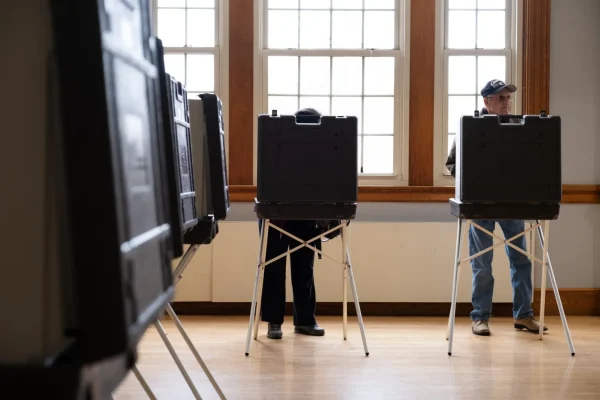Lost and fined: New fines given to hikers needing rescue
Photo courtesy of Creative Commons/ True New Zealand Adventures
A person walks across a rocky terrain.
In recent years, hiking has become a favorite hobby of many, bringing over 49.7 million out to the trails in 2019 alone. With the COVID-19 pandemic, the woods were packed with people looking to escape from lockdowns and quarantines or to get away and get a breath of fresh air.
With the increase of hikers in the woods––especially those new to hiking––the number of rescue operations for lost hikers also rose, leading to a number of states to implement fines for those needing rescue.
Search and rescue coordinator for the Maine Department of Inland Fisheries and Wildlife Sergeant Josh Bubier said that the average number of rescues during April and May was previously 56, but rose to 89 in April and May of 2020.
These increases in rescues have put pressure on search and rescue teams and resources. Because of this, many states are looking for ways to dissuade hikers from taking unnecessary risks.
In 2008, New Hampshire passed a law allowing the state to seek reimbursement from the rescued individual if state officials deemed their behavior leading up to the rescue to be negligent.
Colonel Jordan of the New Hampshire Fish and Game Department said “We don’t do it very often… it’s got to be something that’s pretty wild, pretty out there. But one thing I am pretty strict on is being unprepared because those are literally the things that cost lives.”
Five other states—including Hawaii, Idaho, Maine, Vermont and Oregon—have similar laws allowing the states to bill those needing to be rescued.
In Hawaii, hikers that fail to follow trail signs or wander off the marked trails would have to reimburse local rescue teams under proposed bill SB 363. SB 363 would also levy criminal fines and petty misdemeanor charges.
At the University of New Haven, opinions on the implementation of these fines are split. On fines from search and rescue after a hypothetical hike gone wrong, senior psychology major Leticia Reyes said “No. I didn’t want to get lost. I [just] happened to get lost.”
Freshman criminal justice major Nadia Gonzalez said the opposite. When given the same hypothetical scenario, she said she would be comfortable paying rescue-related fines.
While opinions vary, some wonder if such fines will do more harm than good. While relieving the pressure currently being put on search and rescue teams is highly important, many worry that these fines will discourage hikers from seeking help when they need it the most, therefore potentially putting their lives at risk. For lost or inexperienced hikers, a phone call reaching out for help can make a massive difference in the timeline leading up to their rescue and safe return.






